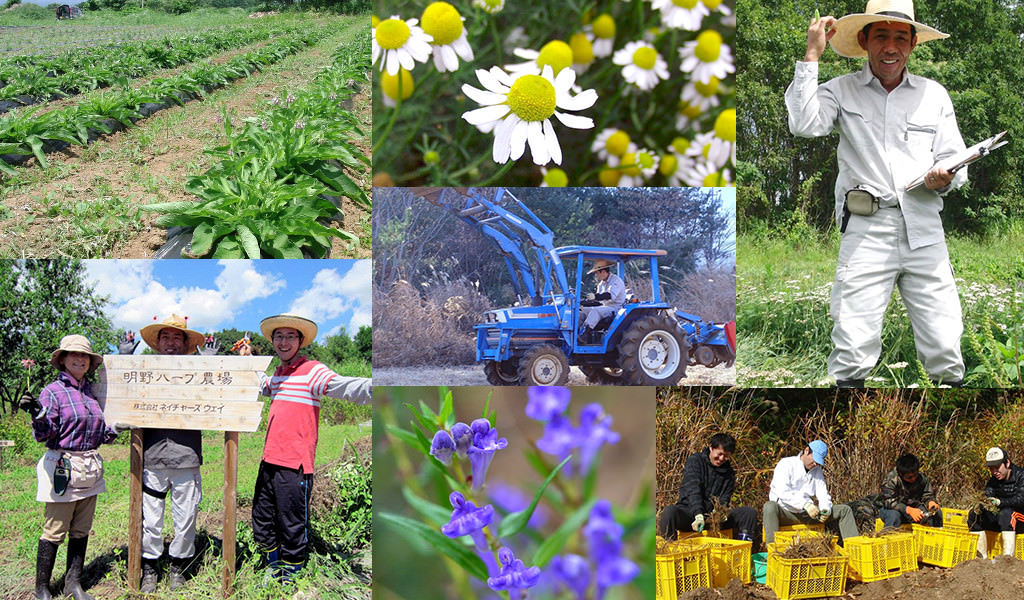Traceability
Aiming to deliver cosmetics that are easy on the skin and can be used with peace of mind, we use 100% natural ingredients*
- * We use raw materials that are naturally sourced or processed from natural materials.
- * Examples include Naturaglacé, Chant a Charm, and Weleda
At Nature’s Way, our mission is to deliver cosmetics that maintain beautiful, healthy skin.
For this purpose, it is vital to use safe and reliable natural materials.
Ever since our founding in 1974, we have strived to produce products using carefully selected materials based on our own proprietary standards, in pursuit of natural cosmetics that are gentle on the skin.
We use only carefully selected natural materials
All of our products are made using only natural ingredients, selected based on the following strict standards.
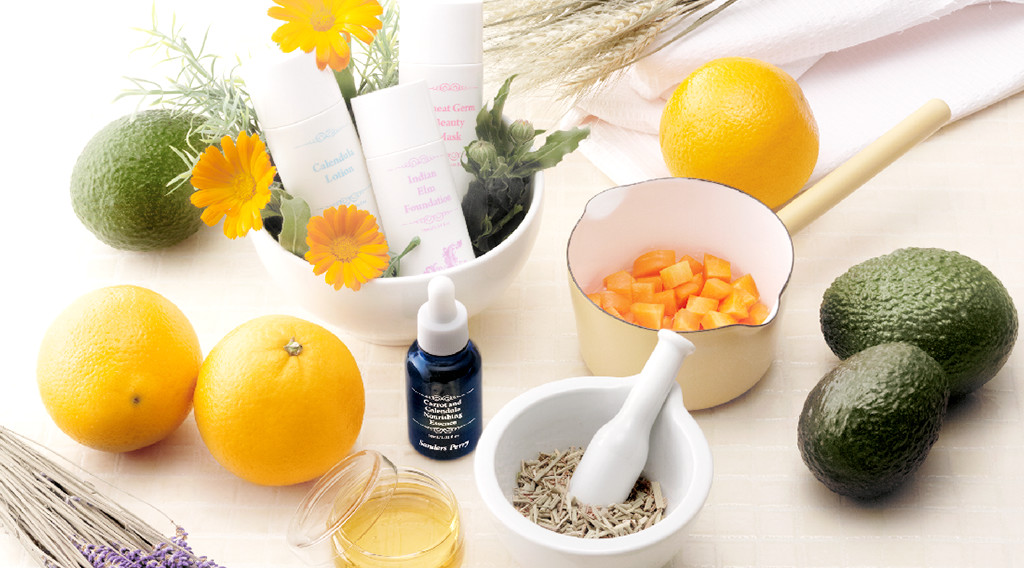
-
- Natural Ingredients
- We use natural ingredients or naturally-derived ingredients wherever possible.
-
- Natural Fragrances
- We use only natural essential oils for fragrances.
-
- Vegetable Oils
- We avoid mineral oils and use only vegetable oils in our pursuit of recyclable, sustainable ingredients.
-
- Organic
- We promote the use of organic ingredients that eliminate worries about residual pesticides.
-
- Domestic
- We promote the use of domestic ingredients like herbs from our farm for clear traceability.
-
- Additive Free
- We don’t use any parabens, coal tar coloring, silicon, mineral oils, or UV absorbing agents.
-
- Reduced Pollution
- As much as possible, we strive to use materials that are highly biodegradable or made using waste bio resources
Cutting out all chemical ingredients
We stress natural ingredients to develop products that are not reliant on chemicals.
- Paraben
- tar pigments
- silicone
- mineral oil
- ultraviolet absorbents
Our Farm
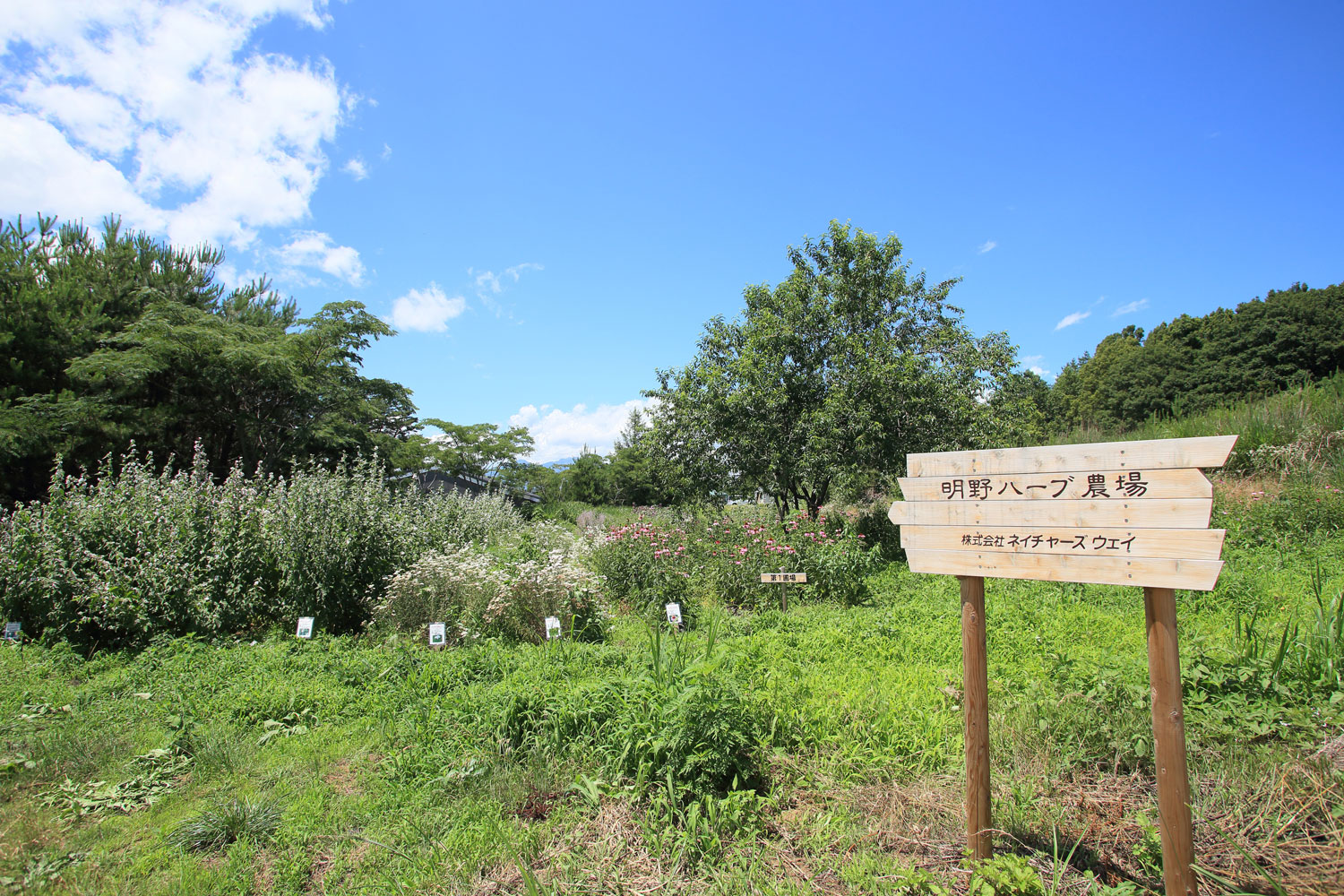
To deliver even better safety and peace of mind,
We grow our herbal ingredients on our own farm
Given our concern with natural ingredients, we have always wanted clear traceability regarding who makes our ingredients, and where. We arrived at the idea of growing our own ingredients as a product of our demands for safety and security, and this idea produced our in-house farm.
Akeno Herb Farm
We have an in-house farm in the city of Hokuto, Yamanashi, where we cultivate organic products on 3,850m2 of cultivated land.
Our farm is located at an elevation of 800m in the southern foothills of Mt. Kayagatake, surrounded by Mt. Fuji, Japan’s Southern Alps, and the Yatsugatake Mountains. The area is known for receiving the largest number of sunlit hours of anywhere in Japan.
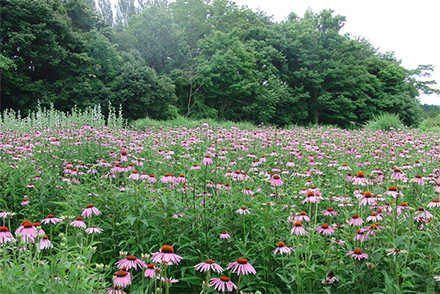
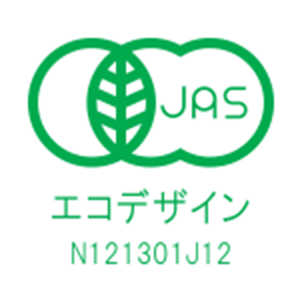
Our Painstaking Organic Agriculture Is Certified “JAS Organic” by National Safety Regulators
We absolutely insist on organically-grown herbs, and our farm received Organic JAS Certification in 2012.
Having cleared Japan’s high standards, our products are recognized as safe, organic agricultural products.
Purchasing conditions
- No agricultural chemicals used in the soil for at least three years
- Use of organic fertilizers that also are free from ingredients such as chemicals and heavy metals
- Maintenance and promotion of the natural cyclical functions from the nature of the soil
- Maintenance of environmental and sanitation management (including keeping out external impurities)
- Establishment and implementation of a management program for the above conditions
- Inspection, and annual renewal screening, by an independent agency regarding all matters related to the above conditions
Herbs we grow
Currently we grow 20 types of herbs in total. We also use these as raw materials in our products.
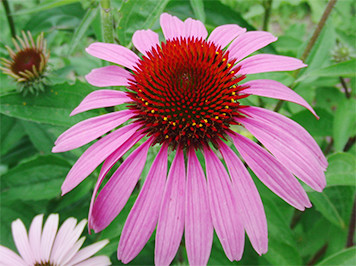 Echinacea
Echinacea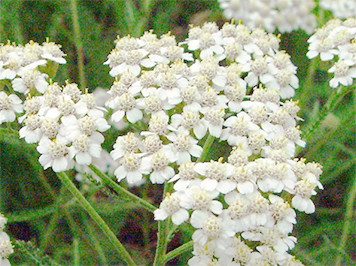 Yarrow
Yarrow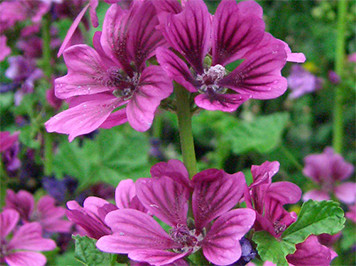 Mallow
Mallow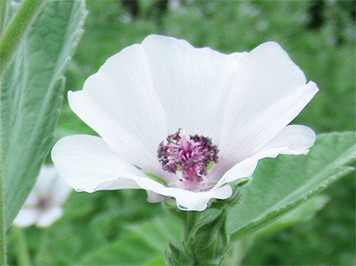 Marshmallow
Marshmallow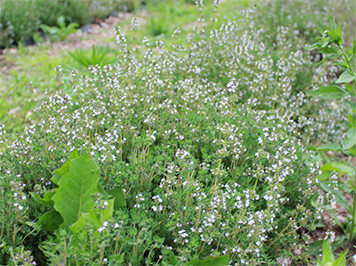 Thyme
Thyme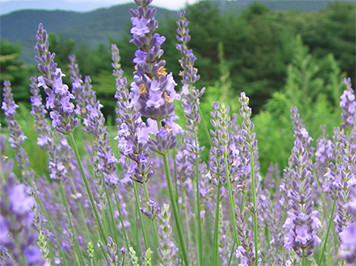 Lavender
Lavender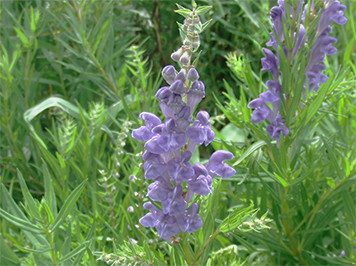 Scutellaria root
Scutellaria root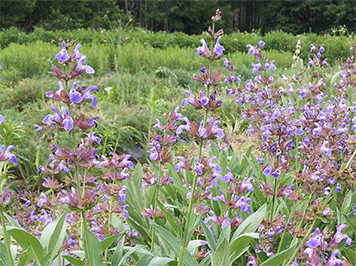 Sage
SageA year at Akeno Herb Farm
Growing organic herbs involves work that changes with the seasons. It starts with sowing seeds in the spring, followed by weeding under the hot summer sun, harvesting in autumn, and preparing the soil during winter for the next year. An introduction to activities at our company farm, which are conducted in sync with the rhythms of nature, is provided below.
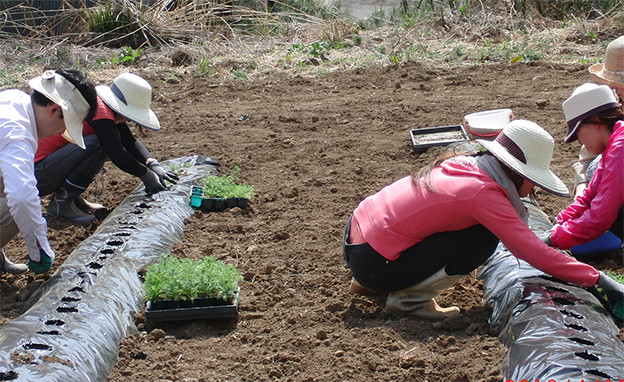
Spring: Sowing seeds and planting seedlings
We grow more than 20 varieties of herbs at our company farm. After sowing seeds and planting seedlings, we spread a covering of rice husks to protect them from the chill winds and assist their initial growth under tough conditions.
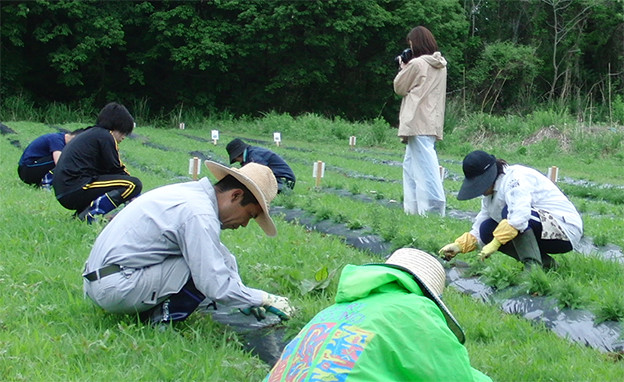
Summer: Weeding
Regular weeding is conducted because weed growth is strong on an organic farm. Since many animals live on the farm as well, efforts to fight moles, who hunt in the soil for earthworms, also are essential.
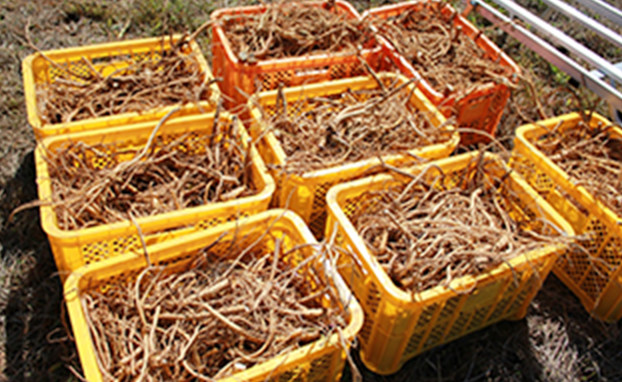
Autumn: Harvesting
Herbs whose extracts are extracted from the roots are prepared through means such as snipping off the flower buds so that their nutrients are not diverted to flowers or seeds. Each herb is harvested individually and washed in water, then dried.
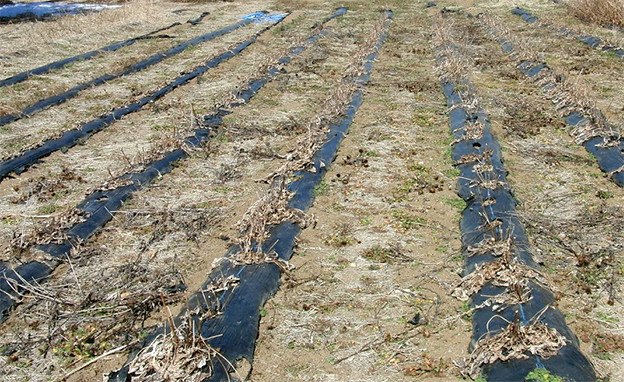
Winter: Soil preparation
During the winter, when herbs are dormant, the soil is churned multiple times. This has various effects, including removing harmful pests from the earth, adding oxygen to the soil, and promoting degradation of microorganisms. These efforts are essential to organic cultivation free from use of agricultural chemicals.
Comments from the farm manager
Hiroshi Yamaguchi,
Farm General Manager,
Development and Research Office, Nature’s Way
Our dream is to produce products made entirely from herbs we grew ourselves
When the company farm first started, I was the only staff member working on the project. I came to the site around autumn 2009 and began field preparations. The undeveloped land was in its natural state, well suited to organic cultivation. The fields gradually took shape through the processes of weeding and removal of large stones, with the help of neighboring farmers.
An important prerequisite of organic farming is that no chemical fertilizers or pesticides be used. Since at the time we started growing herbs there were no manuals available on the process, we had to figure everything out on our own. In the farm’s first fiscal year, most of the results were not as anticipated. Some herbs withered away, while others produced only tiny blossoms. We constantly were feeling our way around through those first three years.
But each time I visited the site I collected and graphed detailed data from sources such as records of herb growth and the state of the fields. As we accumulated data over several years, I came to sense that gradually we had established methods of growing herbs that were suited to the land.
Today, I visit the company farm in Yamanashi Prefecture two to three times a month to take part in cultivation activities. I work with the herbs year-round, sowing seeds in the spring, weeding in the summer, harvesting in the autumn, and churning the soil in the winter.
In the future, we would like to try producing products made using only herbs grown on the company farm. For this reason, I intend to continue striving even harder in areas such as understanding the herbs and learning to gauge their conditions by how they look.
